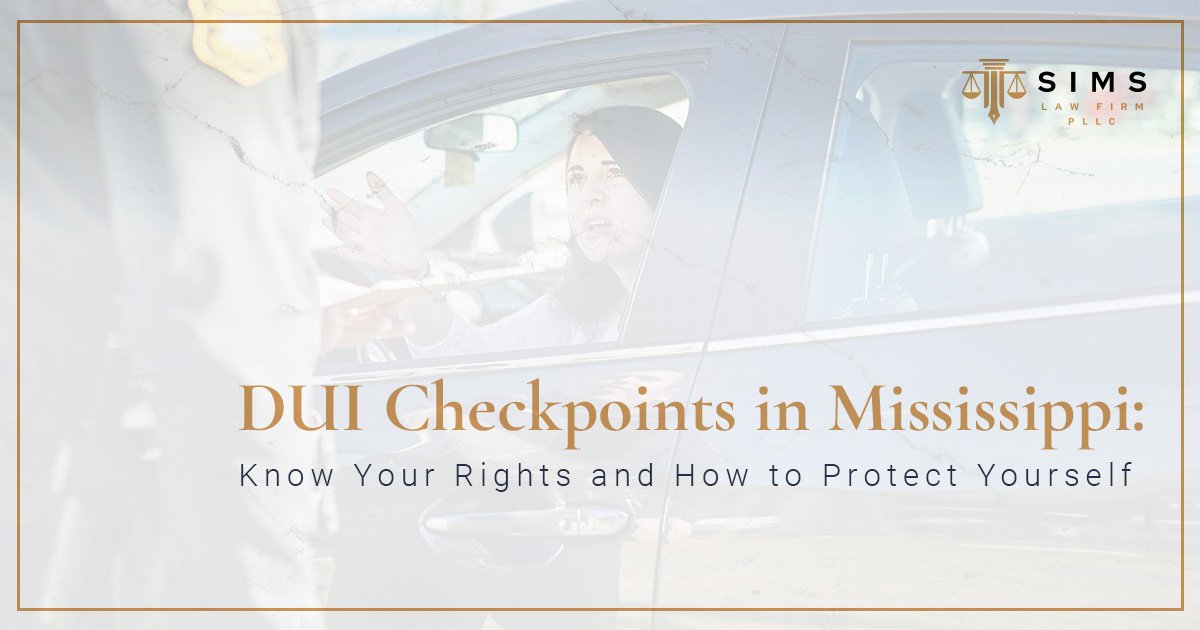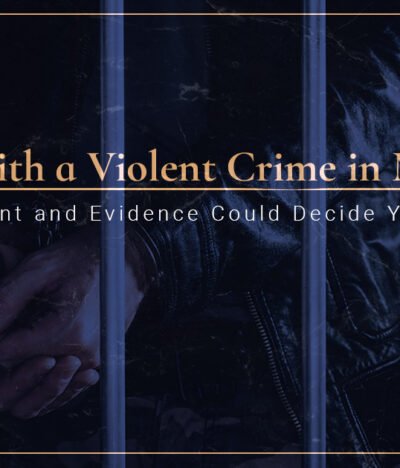DUI checkpoints, also known as sobriety checkpoints or roadblocks, are regularly set up throughout the state of Mississippi, especially during holidays and major events. If you’re stopped at one, understanding your rights and the rules police must follow is critical to protect yourself. At The Sims Law Firm in Ridgeland, Mississippi, we leverage over 25 years of experience to defend clients from DUI charges arising from unlawful or improperly conducted checkpoints. This guide explains what makes a Mississippi DUI checkpoint legal, what you must provide, what you can refuse, and how we fight for your rights.
What Are DUI Checkpoints and Are They Legal in Mississippi?
DUI checkpoints are temporary stops by law enforcement aiming to catch impaired drivers. Mississippi DUI laws allow police to conduct sobriety checkpoints, but with important constitutional safeguards. The United States Supreme Court has held that the public safety interest in preventing drunk driving outweighs the intrusion caused by checkpoints, making them generally legal when properly conducted. Mississippi courts affirm this as well.
Checkpoint officers must follow neutral, pre-established, consistent criteria for stopping vehicles, such as stopping every third car rather than targeting suspicious individuals. The checkpoint must be temporarily located, clearly marked, and publicized before operation, with proper lighting and visible warning signs.
What Must You Provide at a DUI Checkpoint?
When stopped at a Mississippi DUI checkpoint, you are required to provide:
- Your driver’s license
- Vehicle registration
- Proof of insurance
Law enforcement officers are permitted to request these documents as part of a routine, non-intrusive inquiry.
You are not required to answer questions about:
- Where you are coming from
- Whether you have been drinking
- Any personal or incriminating questions beyond basic identification
Under the Fifth Amendment, you have the right to remain silent and politely decline to answer such questions beyond the basic identification information as stated above.
Can Police Search Your Vehicle at a Checkpoint?
Police do not have automatic authority to search your vehicle at a checkpoint. For a lawful search, officers must have probable cause, such as the smell of alcohol, the presence of open containers, or the detection of illegal substances. Without such cause, you can refuse any request to search your car, which would require police to take additional steps, such as obtaining a search warrant.
Are Field Sobriety Tests Mandatory at Checkpoints?
No, field sobriety tests are not legally required in Mississippi. If you’re stopped at a DUI checkpoint, you can politely refuse to perform field sobriety tests, such as walking in a straight line or standing on one leg.
These tests are voluntary, and officers may use them to gather evidence against you. If you’re unsure whether to comply, it’s generally in your best interest to respectfully decline and avoid making any statements without speaking to an attorney.
However, refusal to take a chemical test (like a breath or blood test) after an arrest may trigger implied consent penalties, such as a license suspension. Field sobriety tests are different from chemical tests and do not carry automatic penalties if refused.
What If a DUI Checkpoint Wasn’t Properly Announced or Set Up?
Legal DUI checkpoints in Mississippi must:
- Be announced publicly in advance so drivers know to expect them
- Use a neutral and pre-planned method to determine which vehicles are stopped (e.g., every vehicle or every third vehicle)
- Be clearly marked with signage and lighting for visibility and safety
- Be staffed by officers trained in checkpoint procedures
If these procedures aren’t followed, arrests and evidence obtained may be challenged and suppressed in court.
How Can Sims Law Firm Help My DUI Case?
Facing a DUI charge from a checkpoint stop can be overwhelming—but you don’t have to handle it alone. At The Sims Law Firm in Ridgeland, we use our extensive courtroom experience to:
- Investigate whether the checkpoint followed all Mississippi legal requirements
- Identify any constitutional violations during your stop
- Challenge unlawful searches or improperly obtained evidence
- Advocate for reduced charges or case dismissal when possible
- Thoroughly review the charges and evidence against you, so that you understand your case
We understand what’s at stake: your license, your record, and your future. Our firm provides aggressive, personalized DUI defense for clients throughout Jackson, Ridgeland, Madison County, and central Mississippi who are facing DUI charges.
Frequently Asked Questions
Are DUI checkpoints legal in Mississippi?
Yes, provided they meet the constitutional safeguards and procedural requirements explained above.
Do I have to answer questions at a sobriety checkpoint?
No, but you must provide your ID and vehicle documents.
Can police search my car at a checkpoint?
Only if they have probable cause based on observations.
Are field sobriety tests mandatory?
No. They are voluntary.
What if the checkpoint wasn’t properly announced or set up?
With the assistance of Sims Law Firm, you can challenge the legality of the stop and the evidence if checkpoint protocols were violated.
Where are DUI checkpoints usually set up in Mississippi?
DUI checkpoints are typically set up in high-traffic or high-risk areas, especially near major roads, entertainment districts, and during holidays or public events.
(In central Mississippi, these may include parts of Jackson—particularly near nightlife areas—as well as surrounding Madison County communities like Ridgeland and Madison.)
Talk to a Mississippi DUI Attorney Today
Attorney Trae Sims brings over 25 years of experience and, as a former prosecutor, understands how cases are built from the ground up. Whether you’re navigating your first hearing or facing serious charges, we’re here to defend your rights at every stage.
If you were arrested at a DUI checkpoint in Mississippi, contact The Sims Law Firm in Ridgeland, MS, for a free phone consultation, book an appointment, or call us at (601) 207-3732 for strategic criminal defense today.






